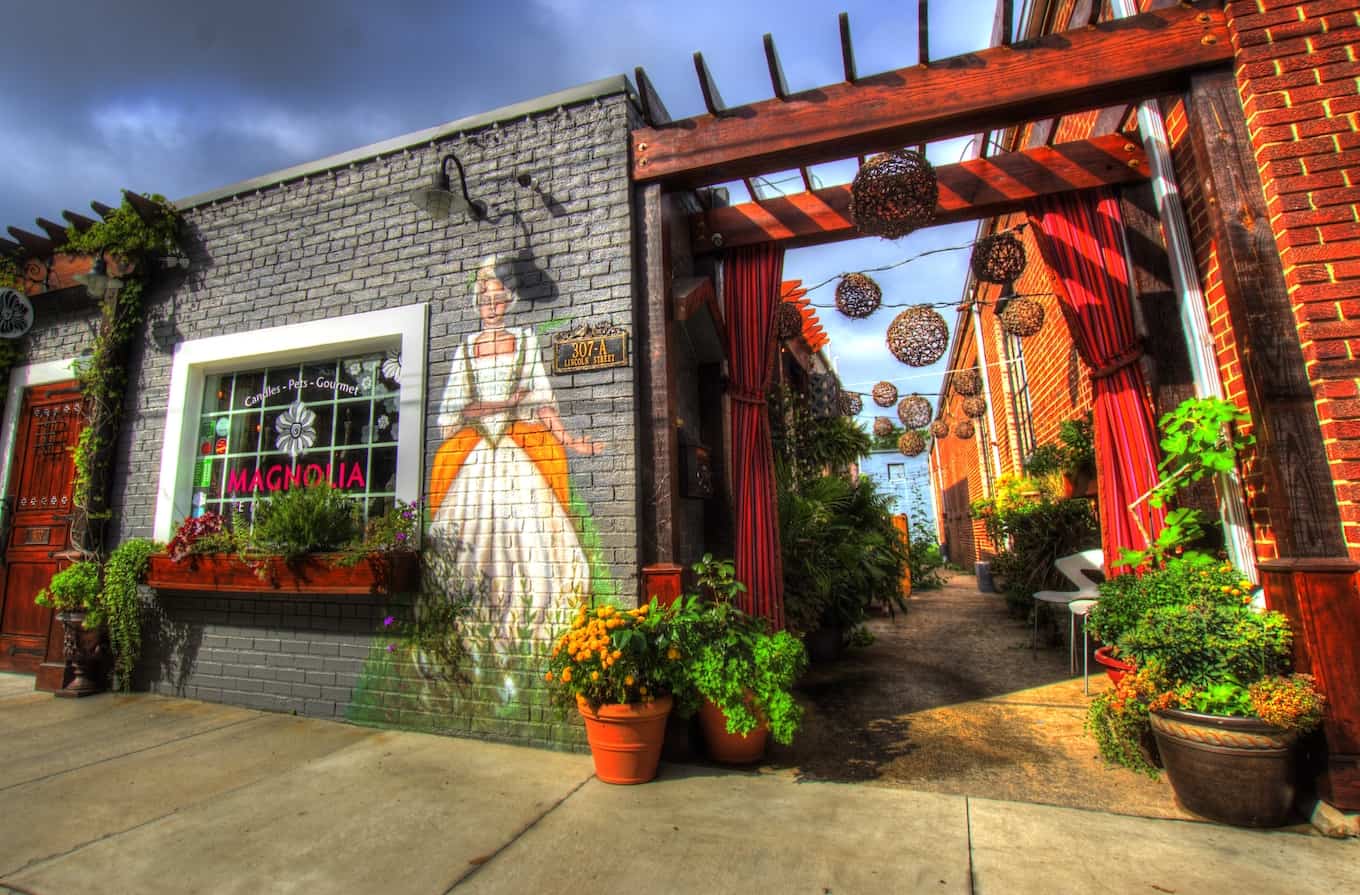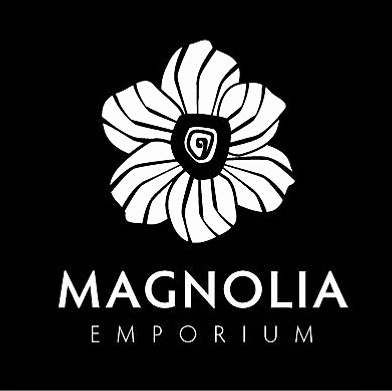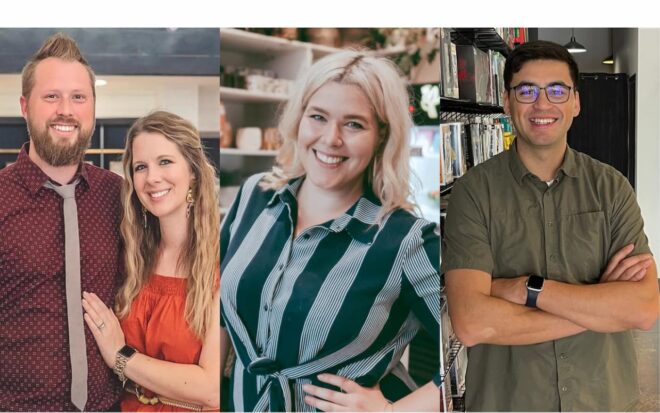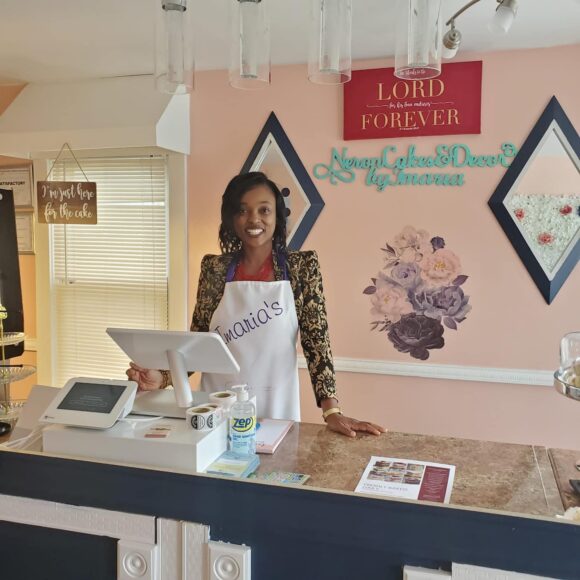Magnolia Emporium
Editorial Team
8 min read
Our Meet the Merchant series features Q&As with real-world Clover merchants. In our first three articles, we talked to Ludwig’s German Table, Tin Pot Creamery, and Onyx Coffee Lab.
In this installment, we chat with Randolph James, the owner of Magnolia Emporium in Charlotte, North Carolina. He shares how Magnolia built its business, supports its community, and is weathering the storm of the COVID-19 shutdown.
Clover: How did Magnolia Emporium come to life?
Randolph James: Magnolia Emporium was created from a bit of a dream—probably more passion than anything. In 2008, I was taking a break from modeling in the Philippines and was at a family haunt called San Miguel de Allende [in Mexico]. I was at a frustrating point in my career, and I picked up the phone and called my mom, Thelma, to ask for some advice. I needed to get back to work, but the market had tanked. She said “Well, what’s your passion?” I answered that design has always been my passion. She said, “That’s your answer.”
I’ve built and sold a lot of businesses over the years, but the common theme has always been high-end design. I needed a name and I needed a brand. I needed something that would work in Mexico, the United States, and in the Philippines. I brainstormed extensively with my mother and my godmother Louise as we developed a vision for the brand and its logo. The common thread was that they all have magnolia trees, so that’s how we came up with the name. Because what we were building was more of an emporium—a collection of curated odds and ends—we called it Magnolia Emporium. Louise has been a fashion model for over 60 years, and our collective aesthetic led us to what is now our iconic logo design.

Clover: And how did your portfolio of products evolve?
James: I wanted to curate products that would bring people in. I was planning it to be by appointment, but I wanted to see if I could bring in foot traffic. A bar was going to open up behind us so I added cocktail mixers. There were a lot of people walking their dogs in the neighborhood, and I had designed a pet boutique in South Florida. So, I thought to add pet toys as well.
I continued drawing from all the businesses in my past, and wanted to be broad in my offerings. Instead of building just one idea out, I spent a few thousand dollars filling shelves and containers with various types of products to see what moved. It would save me from shelling out too much up front and minimize my risk as I found my clientele. But to my surprise, everything worked! I couldn’t believe it. So we have a really eclectic mix of art, home goods, and pet accessories. Part of what we do is help support those who come into our lives, whether it’s the small business owners we buy from or the artists who come into our store who want to show with us. We have 45 artists that we help support.
Clover: That’s great that you were thinking about your community as you planned your inventory. What can you tell us about the neighborhood surrounding Magnolia Emporium?
James: Well, we looked around for some offices. After about a year scouring Charlotte, North Carolina, I settled on the place we are located right now. It was very industrial. I was feeling the potential in the neighborhood. I was introduced to some wonderfully influential people for the community and within the city: Caren Wingate [Chairwoman of the Gold District and real estate broker] and Steven Overcash [architect]. They were very passionate about this community, which is called the Gold District. They showed immediate enthusiasm for my business plan, and helped me become more involved in the community.
I had a community mural put up on the side of our building which has become synonymous with the Gold District. It is one of the most photographed murals in Charlotte now. We allowed local businesses to add logos for a nominal fee, and that fee goes directly to the artist. It allows me to give the artist a continual stipend from the work she created for me, even now. I think we have five more logos that are getting ready to be added. For me, it is just all about community. Without it you don’t have the support of the people who live there and work there. They are our customers, and we are also customers of theirs, going to the bars and restaurants. We want to support them as much as they support us.
Clover: How did you end up deciding to go with Clover as your point of sale?
James: I’m very big on research. I went through every merchant services provider in great detail. Consistently everything that I found pointed me back to Clover. And frankly, the aesthetics of the system were appealing to me, too. I’m very big on overall design. I didn’t want a place that was an obvious register in my shop. So Clover really fit the design aesthetic that we needed. It also allowed for a large amount of inventory. Robert Naylor, Magnolia’s co-owner and CFO, says “no” to financial decisions that may adversely affect our bottom line. But with Clover, he said “absolutely yes!” Only once in our time with you have we run into an issue, and it was just something technical. We had a need for replacement and it was barely 24 hours and a new system was there. I knew from that point on that I made the right decision with Clover. Whenever we call with questions, Clover’s there.
As we progressed, our notoriety increased. We started getting more businesses in the area. So I joined the board of the Gold District, going to city council meetings and helping develop the plans. One of the things I recommended as new businesses were opening up in the district was Clover. And now about 70 or 80 percent of our [business] community uses Clover.

Clover: We know that the COVID-19 crisis is impacting nearly every business out there. How are you faring?
James: Our store has been shut down for two and a half months already. I noticed a downturn immediately after Christmas, actually. We started closing some days beginning in January and February as a health precaution. My CFO is diabetic and I have had a compromised immune system since I was a child, so it’s a dangerous situation for me and my team.
Businesses around us are starting to open up on a very limited basis. But, it’s not quite safe enough for me to be at the store yet. So we have to, for my own health and safety, continue to maintain closure at the store. We don’t have a choice. It’s not worth it to risk health and safety.
Clover: We’re really sorry to hear that, but we know your loyal customer base will support you when you’re able to reopen. Do you have advice for other businesses as they navigate this crisis?
James: Just hold on. Do whatever you can. Make calls—to the mortgage company, to the auto company, to the insurance company—and get abatements. Get the delays that you need. Do what you can to try and stay in business because you’ve put your blood, sweat, and tears into it, as most small business owners do.
You also need to reinvent. If you can offer drive-by pickup, do it. The most exquisite, Michelin-starred restaurant nearby usually offers creations that blow your mind. But now they are making roasted chicken and mashed potatoes and things like that for pickup, because it helps keep their employees paid and their “doors open” on a limited basis. If you can set up a tent and sell outside, do it. If you need to do a fundraising campaign, do it. If you need to go after grants, do it. One bad season can shut a business down. Do whatever you have to do to keep that dream alive.
However, it is okay if it fails. If you still have your health, that’s all that matters. That’s more important than anything else. You can always start anew if you have to.
Related Posts
How Clover helps retailers run their businesses: Inventory edition
Neron Cakes and Decor
Popular Topics
Stay In Touch
Sign up and learn more about Clover.
Thank you for your subscription!
Recent Stories
- Dropshipping: What it is & why it might be smart for your small business
- What you need to know about automatic gratuity laws for restaurants
- Top management skills all small business owners should have
Please share your contact information
to access our premium content.
Thank you for sharing your contact information.
Download Now





